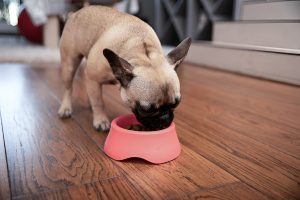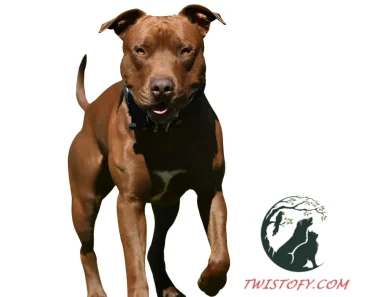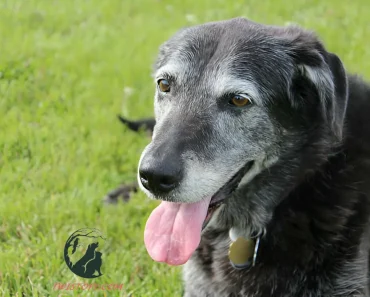Bulldog nutrition are beloved for their charming wrinkles and endearing personalities. However, behind their tough exterior lies a sensitive digestive system and specific nutritional needs. This guide aims to provide bulldog owners with essential information on how to nourish their furry companions for optimal health and happiness.

Bulldog nutrition
What food is best for a Bulldog?
Bulldogs have specific dietary needs due to their unique physiology, including their brachycephalic (short-nosed) facial structure and tendency towards obesity. Here are some considerations when choosing food for Bulldogs:
- High-quality protein: Look for dog foods with high-quality sources of protein, such as chicken, beef, or fish. Protein serves as a vital component for both muscle development and maintaining overall health.
- Low-fat content: Bulldogs can easily gain weight, which can exacerbate their breathing difficulties and joint issues. Opt for foods with moderate fat content to help them maintain a healthy weight.
- Digestible carbohydrates: Bulldogs may have sensitive stomachs, so choose dog foods that contain easily digestible carbohydrates like rice or sweet potatoes.
- Joint support: Bulldogs are prone to joint problems, so foods containing glucosamine and chondroitin can help support their joint health.
- Limited ingredients: Some Bulldogs may have food sensitivities or allergies, so consider limited ingredient or hypoallergenic dog foods if your Bulldog experiences digestive issues.
- Moisture content: Bulldogs can be prone to dehydration, so wet or canned dog food can help ensure they stay adequately hydrated.
Always consult with your veterinarian to determine the best diet for your Bulldog nutrition based on their individual needs and any health concerns they may have.
What is the appropriate daily food intake for a Bulldog?
The amount of food a Bulldog should eat per day can vary depending on factors such as age, weight, activity level, metabolism, and overall health. As a general guideline, adult Bulldogs typically require around 1 to 1.5 cups of high-quality dry dog food per day, divided into two meals.
However, it’s essential to monitor your Bulldog’s body condition and adjust their food intake accordingly. If your Bulldog is gaining weight, you may need to reduce their food portion size, and if they’re losing weight or seem hungry, you may need to increase it.
Always follow the feeding guidelines provided on the dog food packaging as a starting point, but be prepared to adjust based on your Bulldog’s individual needs. Additionally, consult with your veterinarian for personalized feeding recommendations based on your Bulldog’s age, weight, and activity level.
What foods can Bulldog nutrition not eat?
While Bulldogs can enjoy a wide variety of foods, there are several items that should be avoided as they can be harmful to their health. Here are some foods Bulldogs should not eat:

Bulldog nutrition
- Chocolate: poses a serious risk to dogs due to its theobromine and caffeine content, potentially leading to symptoms such as vomiting, diarrhea, seizures, and, in severe cases, fatal outcomes.
- Grapes and raisins: Grapes and raisins can cause kidney failure in dogs, so it’s best to avoid feeding them to Bulldogs.
- Onions and garlic: in any form—raw, cooked, or powdered—contain compounds that can harm a dog’s red blood cells, potentially resulting in anemia.
- Avocado: Avocado contains a substance called persin, which can be toxic to dogs and cause vomiting, diarrhea, and other digestive issues.
- Xylitol: Xylitol is a sugar substitute found in many sugar-free gum, candies, and baked goods. It can cause a rapid release of insulin in dogs, leading to hypoglycemia (low blood sugar), seizures, and liver failure.
- Alcohol: Alcohol can cause intoxication and alcohol poisoning in dogs, leading to symptoms such as vomiting, diarrhea, difficulty breathing, tremors, and even coma.
- Bones: Cooked bones, especially those from poultry or fish, can splinter and cause choking, gastrointestinal blockages, or puncture the digestive tract. It’s safer to offer raw bones or bone alternatives specifically designed for dogs.
- High-fat foods: Foods high in fat, such as fatty meats, fried foods, and rich gravies, can lead to pancreatitis, a painful and potentially life-threatening inflammation of the pancreas.
Always be cautious when introducing new foods to your Bulldog’s diet and consult with your veterinarian if you have any questions or concerns about what foods are safe for them to eat.
What is the Favourite food of Bulldog nutrition ?
Bulldogs, like any other dog, can have individual preferences when it comes to food. While there isn’t a specific food that can be universally considered a Bulldog’s favorite, many Bulldogs enjoy foods that are rich in flavor and aroma. Some Bulldogs may have a preference for protein-rich foods like chicken or beef, while others may enjoy foods with a savory or meaty taste.
Ultimately, the favorite food of a Bulldog nutrition will depend on their personal tastes and dietary needs. It’s essential to provide them with a balanced diet that meets their nutritional requirements while also considering any food sensitivities or allergies they may have. Experimenting with different types of food and observing your Bulldog’s reaction can help you determine their favorite foods.
Is chicken good for Bulldog nutrition?
Yes, chicken can be a good protein source for Bulldogs when included as part of a balanced diet. It is a lean protein that provides essential amino acids necessary for muscle development and overall health. Many high-quality dog foods contain chicken as a primary ingredient.
When feeding chicken to your Bulldog nutrition , it’s essential to ensure that it is cooked thoroughly to kill any harmful bacteria and to remove bones, which can pose a choking hazard or splinter and cause internal injuries. Additionally, chicken skin should be removed, as it is high in fat and can contribute to weight gain or digestive issues.
As with any food, chicken should be fed in moderation and as part of a balanced diet that includes other protein sources, carbohydrates, fats, vitamins, and minerals. It’s always a good idea to consult with your veterinarian for personalized feeding recommendations for your Bulldog nutrition based on their age, weight, activity level, and any specific dietary requirements or health concerns they may have.
Can bulldogs eat meat?
Yes, Bulldogs can eat meat, and it can be a beneficial part of their diet. Meat is an excellent source of protein, which is essential for muscle development, maintenance, and overall health in dogs, including Bulldogs.
When feeding meat to your Bulldog nutrition , it’s important to consider the following:
- Cooking: Raw meat can contain harmful bacteria such as Salmonella and E. coli, which can pose health risks to your Bulldog. Therefore, it’s generally recommended to cook meat thoroughly before feeding it to your dog.
- Lean cuts: Choose lean cuts of meat to avoid excessive fat intake, which can contribute to obesity and other health issues in Bulldogs. Lean meats such as chicken breast, turkey, lean beef, and lean pork can be suitable options.
- Variety: Offer a variety of meats to provide your Bulldog with a range of nutrients. Rotate between different types of meat, including poultry, beef, pork, and fish, to ensure a balanced diet.
- Portion control: Feed meat to your Bulldog nutrition in moderation, as part of a balanced diet that includes other essential nutrients such as carbohydrates, fats, vitamins, and minerals.
- Consult with your veterinarian: Your veterinarian can provide guidance on incorporating meat into your Bulldog’s diet, as well as recommend specific types and amounts of meat based on your Bulldog’s individual nutritional needs and any health considerations they may have.
Overall, meat can be a valuable and nutritious component of a Bulldog’s diet when fed responsibly and as part of a well-rounded meal plan.

Bulldog nutrition
Bulldog nutrition Guide
Here’s a basic feeding guide for Bulldogs:
- Choose high-quality dog food: Select a high-quality dog food that is specifically formulated for Bulldogs or for medium-sized breeds. Look for options that list meat as the primary ingredient and avoid foods containing fillers, artificial colors, and preservatives.
- Consider age and activity level: The amount of food your Bulldog nutrition needs will depend on factors such as age, weight, and activity level. Puppies will require more frequent meals and may need puppy-formulated food to support their growth and development. Adult Bulldogs typically require two meals per day, but senior Bulldogs or those with lower activity levels may need fewer calories.
- Portion control: Use the feeding guidelines provided on the dog food packaging as a starting point, but adjust the portion size based on your Bulldog’s individual needs. Monitor their body condition and adjust the amount of food accordingly to maintain a healthy weight.
- Divide meals: Bulldogs can be prone to obesity, so it’s best to divide their daily food allowance into two or more meals to prevent overeating and aid digestion. Avoid free-feeding, where food is left out all day for your Bulldog nutrition to eat as they please.
- Monitor treats: Limit the number of treats and table scraps you give to your Bulldog nutrition , as these can contribute to weight gain and nutritional imbalances. Choose healthy, low-calorie treats or use pieces of their regular food as rewards during training sessions.
- Provide fresh water: Make sure your Bulldog nutrition has access to fresh, clean water at all times to stay hydrated, especially during hot weather or after physical activity.
- Consult with your veterinarian: Your veterinarian can provide personalized feeding recommendations based on your Bulldog’s age, weight, activity level, and any health conditions they may have. Regular check-ups can also help ensure your Bulldog maintains a healthy weight and overall well-being.
By following these guidelines and paying attention to your Bulldog’s individual needs, you can help ensure they receive the nutrition they need to thrive.
In conclusion, proper nutrition plays a crucial role in promoting the health and longevity of bulldogs. By understanding their unique nutritional requirements and implementing appropriate feeding practices, owners can ensure that their furry friends thrive and lead happy, healthy lives. Remember, a well-fed bulldog is a happy bulldog!






